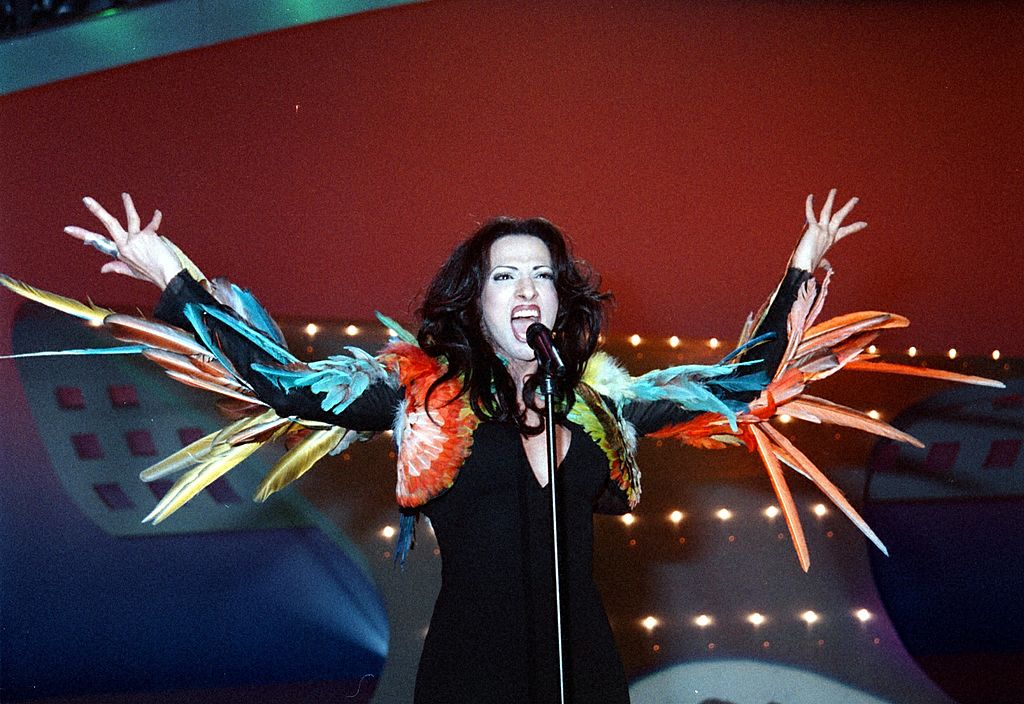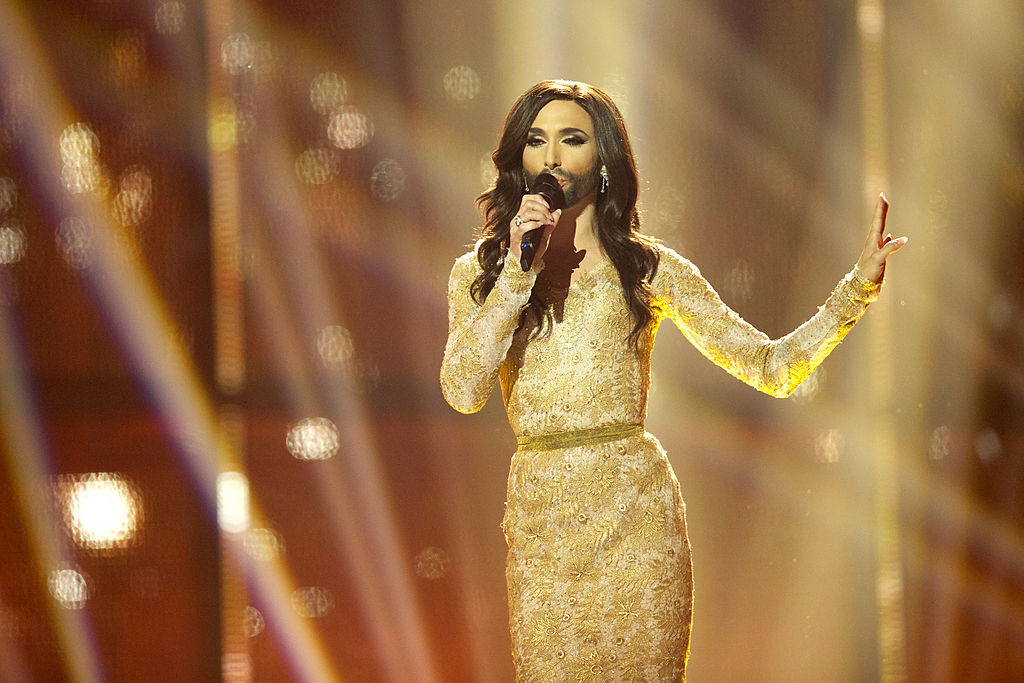How trans Eurovision icon Dana International changed the song contest forever: ‘It’s become our thing’

The Eurovision Song Contest is remarkably and beautifully queer – and a lot of that is down to 1998 winner Dana International. (Getty/Envanto/PinkNews)
In 1998, a young artist by the name of Dana International took to the Eurovision stage to perform a song aptly titled “Diva”.
It was the year of Madonna’s Ray of Light and Geri Halliwell’s headline-grabbing departure from the Spice Girls – but over in Birmingham’s National Indoor Arena, nobody cared. It was all about the glitzy chaos of a fast-changing Eurovision Song Contest.
Dana International became symbolic of just how fast the contest was changing. A trans woman from Israel, she unleashed a performance that – if performed today – would have proven incredibly memeable. It was iconic, camp, fabulous and, best of all, utterly euphoric.
For queer Eurovision fan and UK fan club president Vaughan Staples, Dana International’s performance and subsequent victory marked the exact moment he could see the Eurovision abandoning its more conservative roots and becoming what it is today: a queer-centric celebration of music, from the gloriously camp to the achingly beautiful.
PinkNews was at the 2023 Eurovision Song Contest in Liverpool thanks to Baileys, the event’s official drinks partner. Find out more about the partnership here.
“I became a fan when I was 11 or 12 years old when Eurovision came to Birmingham – that’s my home city,” Vaughan tells PinkNews. “That year Dana International won. I was a young gay lad – not really knowing or thinking that at the time – but I remember that speaking a lot to me.
“I think that’s when we saw change in the contest.”

Before the 1998 Eurovision, the contest had been a little staid, Vaughan says. “It’d been very much staged in theatres, everyone was sitting down, everyone was dressed to the nines, but in Birmingham it was in an arena and fans were allowed to be seen on television.
“They were allowed to stand up and cheer and dance, and a number of those fans were visibly members of the LGBTQ+ community.
“The fact then that someone who is transgender won the contest – those two things coming together at the same time had a big impact in queer people thinking, you know what, this is a space that maybe is for me and we can be represented there. And since then that’s just grown and grown and it’s kind of become our thing.”
Queer people feel ‘connected’ to Eurovision
Since Dana International’s victory, the Eurovision Song Contest has only gotten queerer and queerer. We’ve seen drag queens take to the stage and we’ve seen powerful declarations of same-gender love. What’s more, there have been so many out queer performers that it’s almost impossible to list them all.
For Neil Farren, an editor with Eurovision fan website Eurovoix, the contest’s queerness was built into its DNA right from the start – even if it took a while to rise to the surface.

“Eurovision was founded as a means to promote tolerance and peace among nations,” Neil explains. “As LGBTQ+ people, we hold these values dear in our own lives.
“In a society that has traditionally told men to repress their emotions, Eurovision offers larger than life performances full of glamour by divas, whom gay men have traditionally gravitated towards.”
That’s not always been the lay of the land, of course. Neil says the contest started off with “conservative non-offensive music styles”, but that started to shift gradually in the 1970s when disco found its way in. He agrees with Vaughan that it wasn’t until the 90s that things really changed.
“It would take until 1997 to have the first openly LGBTQ+ performer on stage. Páll Óskar represented Iceland in 1997 with a very provocative performance unseen in Eurovision before. He might not have scored high but his performance marked a change in both LGBTQ+ visibility at the contest and the musical direction of the contest as a whole.
“A year later, Dana International won for Israel, giving a massive boost to trans visibility and solidifying the love that the LGBTQ+ community has for Eurovision.”
Pedro Santos, a queer Eurovision fan and reporter with the Eurovision World fan website, says the show’s queer-centric outlook is “a beautiful thing”.
“We always say there’s a Eurovision bubble because all of the values we stand for – acceptance, inclusion – everything is really there. Even countries that are known to be more homophobic, such as Hungary or Russia, even then those countries would never really have homophobic actions at Eurovision back in the day, they would be very accepting.”
It’s a safe, welcoming environment for queer people of all stripes – and that’s what makes it so special today.
“You feel protected. No one is there to judge you, everyone is there to have fun, be themselves exactly as they are.
“I feel like that’s why the queer community really feels connected to the show.”

